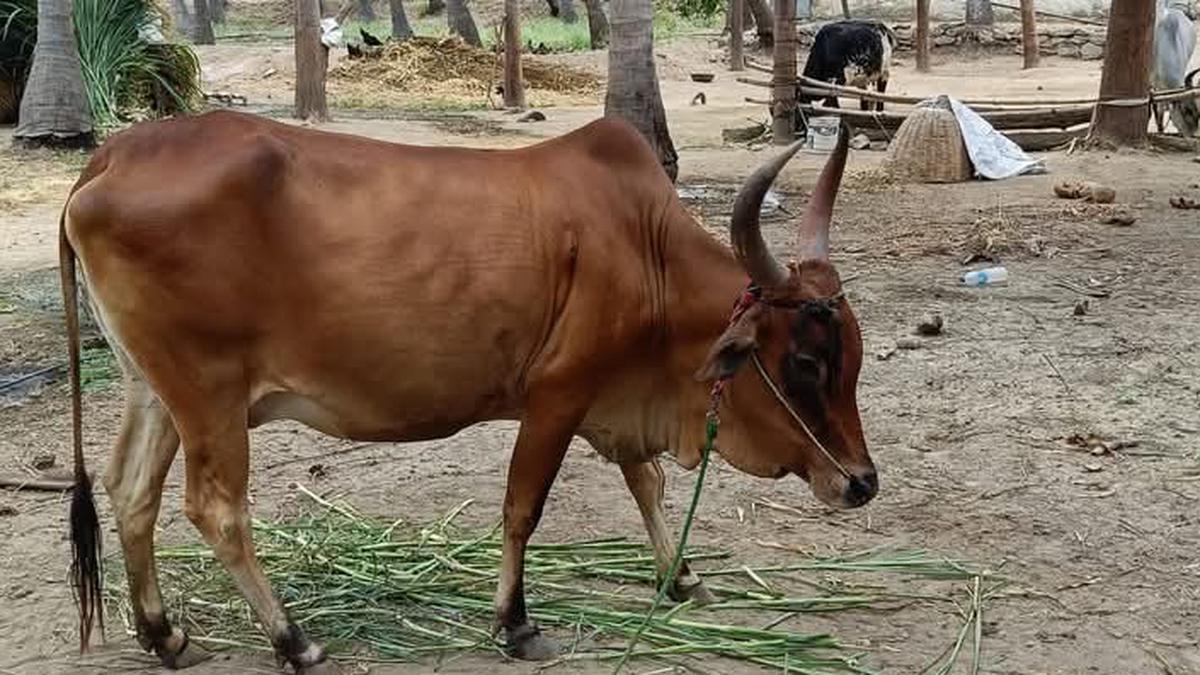
Increasing demand for Kangayam cattle with red coat, say breeders in Tiruppur
The Hindu
Tiruppur breeders use artificial insemination to meet demand for red Kangayam cattle, expanding buyer base through WhatsApp.
Breeders in Tiruppur point to a noticeable interest in red-coloured Kangayam cattle among buyers.
Breeders of the Kangayam cattle in the Kongu region count on artificial insemination using the sperm of cattle with red coats to ensure the desired colour in the offspring, said Surendran, a breeder from Alagumalai in Tiruppur district, who relies on WhatsApp platform to expand the buyer base. The increasing popularity of Kangayam cattle is attributed in part to jallikkattu, he observed, and added that the red coloured ones account for less than 15% of the overall cattle population.
According to an official of the Animal Husbandry department, the coat is generally red at birth, but changes to grey at about six months of age. The bulls are grey with dark colour in hump, fore and hind quarters. Cows are grey or white. However, animals with red, black, fawn and broken colours are also observed, the agritech portal of Tamil Nadu Agriculture University states.
By and large, though they are no more draught animals, ownership of Kangayam breed cattle, irrespective of the colour of the coat, is associated with a sense of pride, and hence the increase in demand from across Tamil Nadu and even beyond, said Babu, another breeder.
From the time of the COVID lockdown when the utility of online platforms was tapped for selling this breed of cattle, the base of buyers has expanded. Not surprisingly, the number of WhatsApp groups for trading in this breed of cattle has also risen. In fact, the WhatsApp groups serve the purpose of scaling up the trade in the regular cattle markets. If not for the WhatsApp groups, the buyers would have remained confined to the Kongu region, Mr. Surendran sought to explain.













